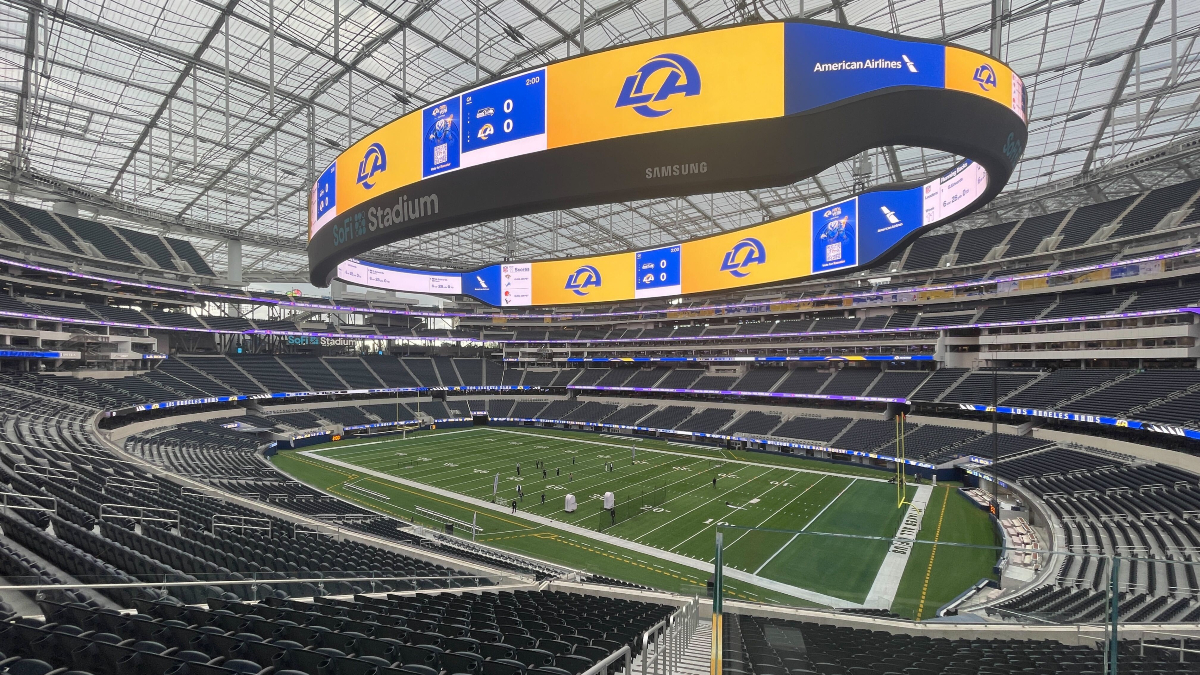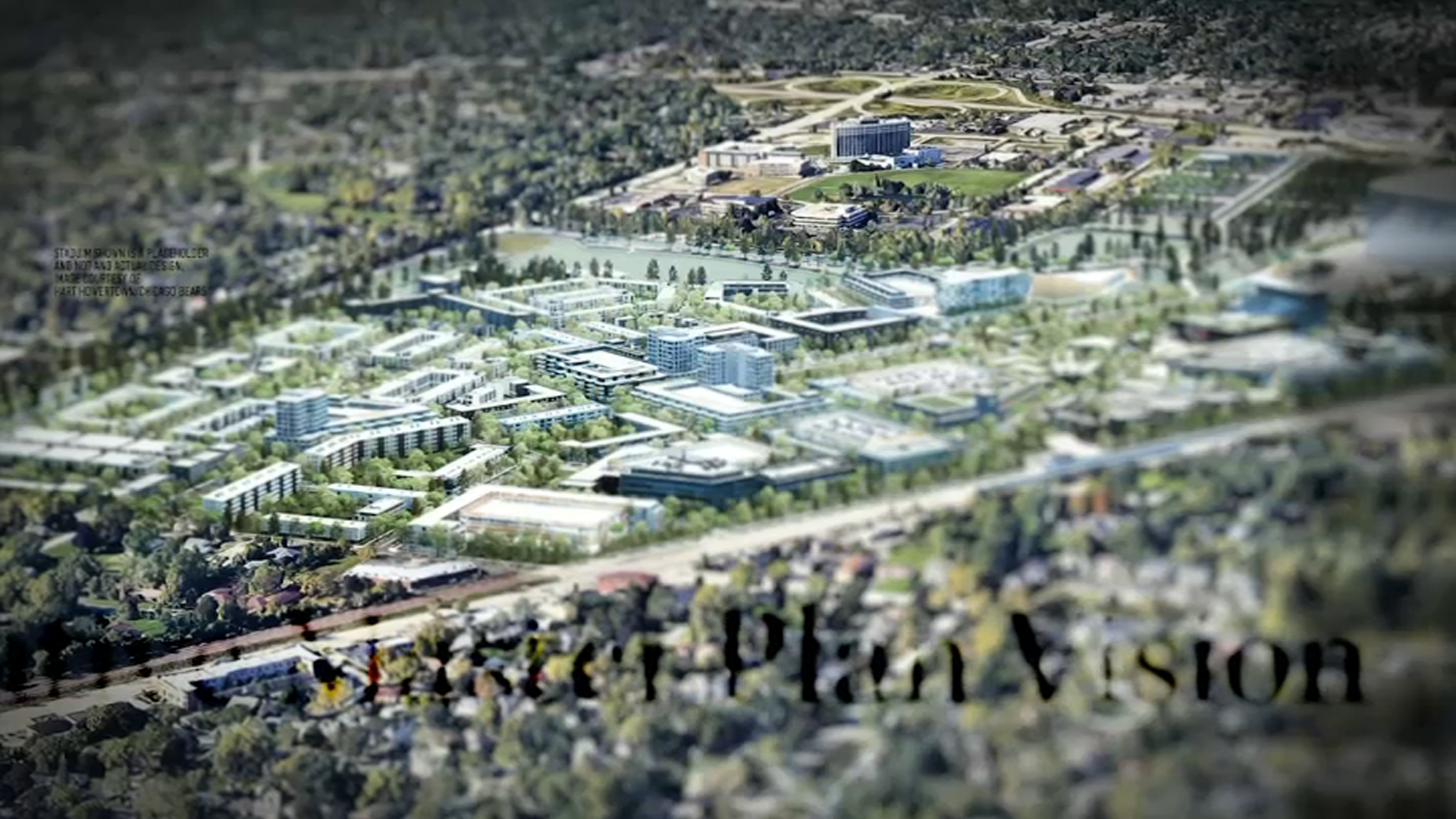As the Chicago Bears eye a move from Soldier Field to suburban Arlington Heights, Chicago officials have publicly lobbied the team to stay, with Mayor Lori Lightfoot proposing renovation plans for the 100-year-old stadium that even include a dome. But internal communications obtained by NBC 5 Investigates show that by the time she made that pitch, the relationship between the city and the franchise was already irreparably broken.
In July, Lightfoot unveiled three potential renovation options for Soldier Field, with estimates ranging between $900 million and up to $2.2 billion.
“We are doing what we believe is making a compelling case for the Chicago Bears to stay in Chicago,” Lightfoot said at a news conference announcing the pitch – a Hail Mary effort to keep the Bears happy.
But that announcement was just two weeks after Bears President and CEO Ted Phillips emailed Chicago Deputy Mayor Samir Mayekar to reiterate “the only potential project we’re exploring for a new stadium development now is Arlington Park.”
Feeling out of the loop? We'll catch you up on the Chicago news you need to know. Sign up for the weekly Chicago Catch-Up newsletter here.
“As part of our mutual agreement with the seller of that property, we are not pursuing or discussing alternative stadium deals or sites, including renovations to Soldier Field, while we are under contract,” Phillips wrote, adding that the franchise remained committed to the current operating agreement to play at Soldier Field through the 2033 NFL season, and that he intended to maintain the “strong working relationship” between the Bears and the city.
But that relationship appeared strained in other communications long before then.
Case in point, a letter from Phillips to then-Chicago Park District Supt. Mike Kelly in April 2020, outlining what he hoped would be opportunities for legalized sports betting at Soldier Field under a new Illinois law.
Sports betting entities “are actively interested in partnerships right now,” Phillips wrote, asking to set up a call as soon as possible to discuss. “The longer we wait to begin the discussion, the more likely the incremental revenue opportunity will decrease over time. Other teams in Chicago are being aggressive in pursuing these partnerships and we believe acting now will benefit all parties.”
It would be seven months before Kelly finally responded, writing in November 2020, “At this time it would not be productive to pursue the opportunities outlined in your letter.”
In June 2021, Phillips wrote to Kelly again, noting that Park District chief’s November letter was prompted by follow-up from the Bears after they hadn’t heard back at all on their proposal.
“It is disappointing that it is over a year since we reached out to you and you have refused to engage in good faith discussions about an opportunity that generates revenue for the CPD while leveraging the Chicago Bears brand,” Phillips wrote, again requesting a meeting to discuss a potential sports book.
There is no correspondence indicating the city responded to that letter in writing, and just two weeks later, the Bears announced their bid to purchase Arlington Park.
“I think that may have been the last thing where they said, you know what, we can’t go – we can’t work with these people,” sports and stadium consultant Marc Ganis said, flagging the gambling debacle as an apparent dealbreaker between the city and the Bears.
“It’s a new revenue stream for both. It should have been a no-brainer but because the relationship was so toxic for other reasons, it never happened,” Ganis said.
That toxic relationship was on full display in another series of emails starting in April 2021. Kelly wrote to Phillips about a recent meeting with Lightfoot and her staff in which Phillips said he had not received structural engineering reports on the physical condition of the infrastructure at Soldier Field.
“It is exactly this propensity for historical misstatements that has forced recent communications between us to be reduced to writing,” Kelly wrote, insisting that Phillips had previously acknowledged receipt of the materials and including them in his correspondence anew.
A few days later, Phillips responded with his own letter than begins in part with: “In an attempt to move forward in a more collaborative manner, I will refrain from reacting to your mention of a ‘propensity for historical misstatements.’”
He went on to say that the franchise’s request for engineering studies was “far more encompassing” than the reports Kelly sent, himself attaching a 2017 letter he sent to Kelly detailing the documentation the team needed.
“Unfortunately, little progress has been made on our request, more than four years later,” Phillips wrote.
He further pointed to difficulties in communicating with the city, writing, “Unfortunately, you have rejected every attempt at a meeting or even a phone call to ‘clear the air.’ I remain willing to meet with you in order to work towards a more mutually beneficial business relationship.”
“When things start going downhill, the smallest distinction becomes a monumental one,” Ganis said.
Indeed, the emails are loaded with perceived slights – repeated instances in which the Bears complain their overtures had been greeted by silence.
In July 2021, after the Arlington Park bid had been revealed, Phillips sent a note to Mayekar about an upcoming meeting, saying the Bears intended to discuss ideas “to make Soldier Field among the top 25% of all NFL stadiums.”
Roughly a month later, he emailed again, asking, “Please respond.”
At the last minute, the Bears canceled a late September meeting – originally scheduled for the day before the team ultimately reached an agreement to purchase the Arlington Park site – and later proposed a few options to reschedule. In October, Phillips emailed Mayekar again, noting Kelly’s resignation from the Park District and flagging that he had not received a reply to the proposed meeting dates. To that note, Mayekar responded that he would get back to Phillips.
But two days later, Phillips emailed again to request that meeting and attached a list of discussion topics that included a laundry list of issues at Soldier Field: faded and broken seats (as well as complaints of skin irritation when using armrests), aging equipment and more. He once more brought up a sportsbook and even naming rights. Records show that hour-long meeting took place on Nov. 22, 2021.
“It makes life so much easier when the city and the team and the team owner get along,” Ganis said. “And it makes things infinitely more difficult when they do not, and especially when they do not in a public manner.”
Lightfoot’s office did not respond to request for comment. When asked about the exchanges, a spokesman for the Bears pointed to a statement from earlier this year in which the team said, “we maintain a strong working relationship with Rosa Escareno, the new Chicago Park District General Superintendent, her staff, and the ASM Global management team,” adding that the organization continues to work well with Escareno.




